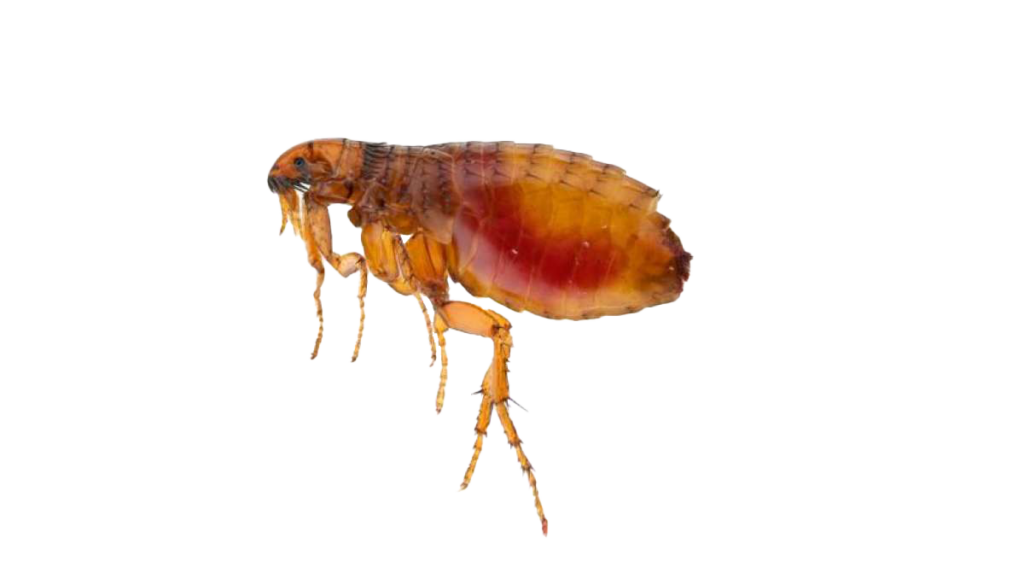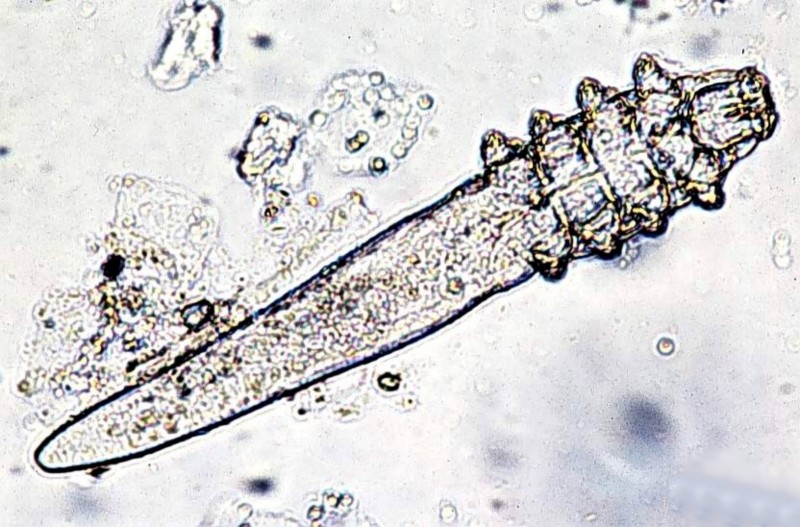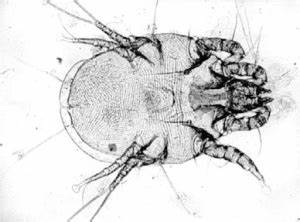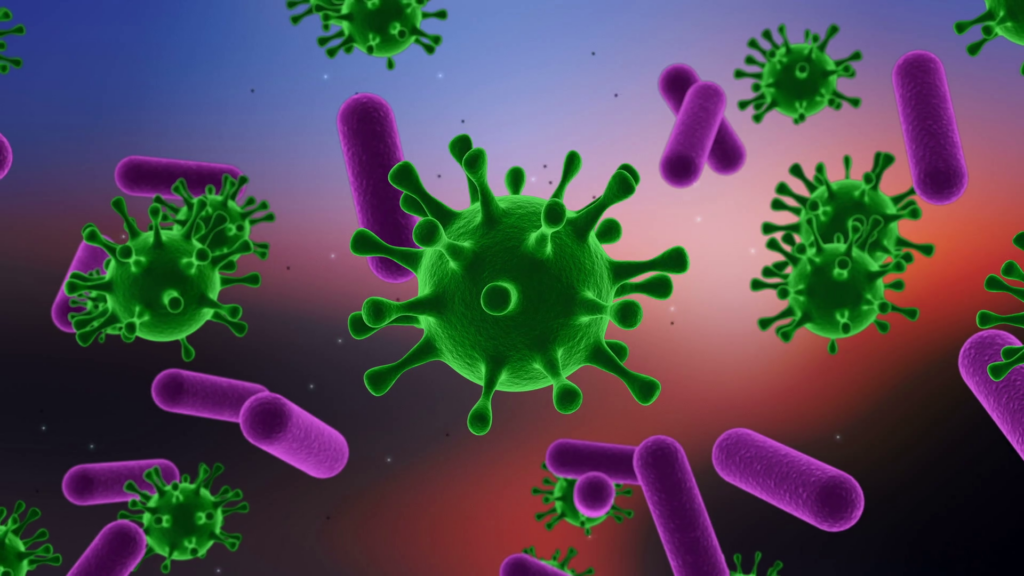
Ditch the Itch: Causes of Itchiness in Pets
Itchiness is one of the most common complaints we hear from clients. Most pets will be affected at some point in their life, but there are a lot of reasons why your pet may be itchy. Keep reading to learn about some of the most common reasons why pets may be itchy.
Parasites



There are several types of parasites that may cause itchiness in pets.
Fleas
Fleas are blood-sucking parasites that can cause extreme itchiness in pets. For some pets, all it takes is one flea bite to set off a cascade of itchiness and skin irritation. So even if you don’t necessarily find fleas on your pet, it is still a good idea to put them on a good flea prevention that will kill fleas and prevent more from jumping on board. Check with your veterinarian to determine which product works best for your pet!
Demodectic Mange
Demodex is a skin mite that is a normal inhabitant of the skin, but sometimes it can become a problem. This usually happens when the immune system is either immature (like in puppies or kittens) or compromised (with certain illnesses). While it doesn’t usually cause itching, it can cause hair loss, dry and flaky skin, and sores. Most Demodex species are not contagious between animals. Many flea/tick preventions will also treat Demodex, but check with your veterinarian to determine what treatments your pet may need.
Sarcoptic Mange
Sarcoptes is another type of skin mite that is not a normal inhabitant of the skin. Also known as Scabies, it is contagious to other animals as well as humans (though it doesn’t seem to like us as much). This type of skin mite does cause intense itchiness and hair loss. This typically affects areas like the belly, ear tips, elbows, and ankles. Many flea/tick preventions will also treat Sarcoptes, but check with your veterinarian to determine what treatments your pet may need.
Dermatophytosis (Ringworm)
Despite its name, ringworm is actually a fungal organism. There are several different species, but they can all cause itchiness and hair loss. Ringworm is pretty contagious to other animals as well as humans, so it is important to identify it. Unfortunately, it can take a long time to diagnose ringworm because fungi are very slow to grow (it can take 4-6 weeks to grow them). This is the most accurate way to identify ringworm, but there are some other tests your veterinarian may run first to help aid in diagnosis.
There are many different ways to treat ringworm, so your veterinarian will work with you to develop a treatment plan for your pet. Oftentimes this includes rigorous cleaning to remove the fungal spores and keep them from re-infecting you or your pets.
Allergies


There are two main categories of allergies: environmental and food. This will be a rough overview of allergies. More information will be included in a future blog post.
Environmental
Just like humans, pets can develop allergies as well. Environmental allergies, or atopy, are common in pets. These are usually seasonal, but some pets may suffer from environmental allergies year-round. Signs include itchiness, recurrent skin or ear infections, and hair loss.
The most commonly affected areas for itching/licking and hair loss include the feet, belly, areas around the mouth and eyes, and the area around the tail. One of the most common things we will see is a pet that comes in with red-stained paws. That staining is from saliva, and it is usually a good indication that the pet is licking or chewing at their feet a lot.
Food
Food allergies are caused by proteins in the diet, and they often require time to develop. For some reason, the immune system will recognize these proteins as foreign invaders and will “attack” them. This results in inflammation that can affect the gastrointestinal system (often leading to vomiting or diarrhea) as well as the skin. The most common areas affected are the face or neck, paws, belly, around the base of the tail, and ears.
Skin or Ear Infections


Skin and ear infections may be a primary cause of itchiness/irritation, but they may also be secondary to food or environmental allergies. It is important to work with a veterinarian to determine the original cause because treating a skin or ear infection may only be a temporary situation if there is an underlying allergy.
Contact Irritation



Itching or irritation due to some type of chemical (household cleaner, plant, shampoo, etc.) may be common. Usually removing whatever the inciting cause is will stop the itching/irritation, but further treatment may be necessary depending on the severity of the inciting cause.
Now It’s Your Turn!
Test your knowledge with this quiz and be entered into a drawing for some awesome prizes: https://www.allcounted.com/s?did=goo57f92h5491&lang=en_US.
Resources
Zoetis Dermatology Blog: www.zoetispetcare.com/blog/category/skin-health-dermatology
Veterinary Information Partner: http://veterinarypartner.vin.com/default.aspx?pid=19239&id=4951526
References
Brooks, W., DVM, DABVP (2022, January 5). Allergies: Atopic Dermatitis (Airborne) in Dogs and Cats. VeterinaryPartner. Retrieved August 6, 2023, from https://veterinarypartner.vin.com/default.aspx?pid=19239&id=4951475.
Brooks, W., DVM, DABVP (2022, October 13). Food Allergies in Dogs and Cats. VeterinaryPartner. Retrieved August 6, 2023, from https://veterinarypartner.vin.com/default.aspx?pid=19239&id=4951526.
Cabell, S., DVM (2023, April 10). What to Know About Mange in Dogs. Skin Health & Dermatology. Retrieved August 6, 2023, from https://www.zoetispetcare.com/blog/article/about-mange-in-dogs.
Zoetis (2022). Itchy Pet Awareness Month. Skin Health & Dermatology. Retrieved August 6, 2023, from https://www.itchypetawarenessmonth.com/#.

